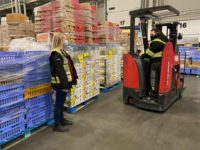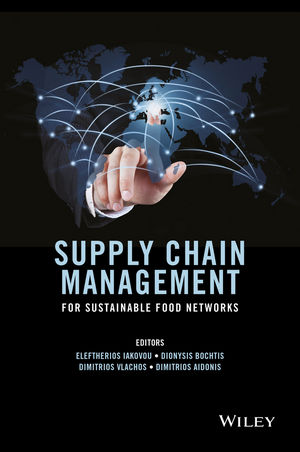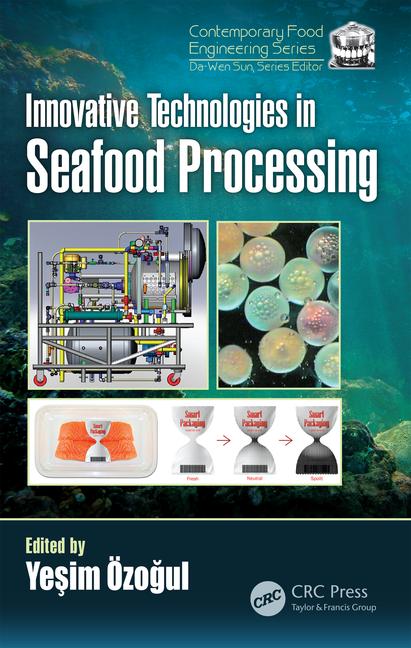COLD SUPPLY CHAIN & LOGISTICS
Women Leading in Supply Chain Management

Image courtesy of xavierarnau | Getty Images | E+
Four women with over six decades in the industry on how they got started and their advice women wanting to grow their careers.
As labor and inflationary pressures continue to impact the supply chain and automation rapidly changes the way work get done, women continue to be an integral part of the industry. R&FF spoke to four women with over a combined six decades’ experience in the supply chain and logistics industry on how they got their start and what advice they’d give to those entering the workforce today.
“During college, I spent each summer working in a segment of the supply chain and logistics industry. My first summer break, I worked at a Walgreen’s distribution center as a laborer picking and packing totes that would eventually be shipped to the stores. My second summer, I worked on the production line putting together varying lighting receptacles at Lutron Electronics. A blended experience from both jobs gave me the inspiration to join a logistics company full time after college. While the operational piece was humbling, it was also a lot of fun, so I decided to stay with the industry but in Human Resources,” said Stacey Weidner, senior director of Human Resources at Ryder.
During her early years at Ryder, Weidner supported the fleet management business unit, which encompasses truck rental, leasing, and maintenance.
“Now, I’m a senior director overseeing HR functions for our consumer-packaged goods vertical in the supply chain business unit. Being involved in both the fleet management and supply chain sides of the business has been an amazing experience—learning what it takes to keep trucks up and running to keeping the supermarket shelves stocked,” she said.
Weidner and her colleagues earned college degrees in fields like engineering or logistics but after graduating, each took a different path into the industry.

“I started my career in finance but early on was given the opportunity to work in logistics, specifically international logistics,” said Carla Silveira, vice president of logistics at Lineage Logistics. “I immediately identified and enjoyed the fast-paced environment and the opportunity to solve problems on a daily basis. In logistics there is always an opportunity to identify ways to eliminate waste and lower cost in the supply chain, and that is what really excites me.”
“I was responsible for managing shipping and receiving (for a major automaker) and all line-side deliveries for the second shift at a component manufacturing site. I often worked 12-hour shifts for six to seven days a week. As a young college graduate, it was a difficult role as I was managing a team of seasoned material handlers in a manufacturing and distribution environment,” said Kristy Killingbeck, who has been serving as vice president of operations for Ryder’s Consumer Packaged Goods division since last year and has been with the company for over 17. “However, the role taught me the value of hard work and how to treat employees with respect while setting clear expectations. My team saw me working hard out on the floor and often matched my energy. I learned that you cannot lead from a desk and that you need to get to know your team to drive success.”
The women agreed the value of mentorship cannot be overlooked.


“My mentors early on were mostly male; however, now I would say I have a mix. Do not worry about waiting on a company’s formal program; instead, put yourself out there and work to build relationships with individuals you look up to and who are a good fit for you,” Killingbeck said. “As a female in supply chain, there are not always going to be a female role models in leadership positions for you to look up to. Early in a career it is easy to become pigeon-holed into one area of supply chain supporting one industry. But supply chain and logistics really is a vast discipline with many different paths. When I started my career in supply chain, I was often the only female in the room. I decided early on that I would not allow that to intimidate me and that I would speak up and participate wherever I thought I could add value. So, my first piece of advice is to put yourself out there and take stretch projects and expand your goals early in your career.”
Building a network can be especially important for women.
“There are so many powerful women in logistics and transportation who can provide guidance and advice. Be involved, stay current, be motivated, and network are keys to success,” Weidner said. Before joining an organization, ask yourself if the company will allow you to challenge yourself. Being challenged to learn and to develop are key substances that make up a world-class organization. Look for companies that make you feel excited about taking on new challenges and offer the support you need to turn those challenges into successes.”
Working in supply chain and logistics allows the opportunity for a variety of roles and job titles.
“Before my current role, I was a director of operations for two years and prior to that, I spent eight years in various roles within engineering in the consumer product goods vertical. And, prior to Ryder, an additional 10 years of experience within operations and engineering. While I enjoy both engineering and operations for very different reasons, I sought roles where I felt my contributions may be most impactful to the organization,” said Kari Bowser, senior director of engineering & continuous improvement at Ryder.
Silveira agreed.

“Leading up to my current position of vice president, I have held roles at all levels of the organization. I started as an entry level logistics specialist, then moved to supervisor, manager, director and now vice president. Working at all levels has given me the knowledge to be a better leader and understand how I can better help my team to succeed,” she said. “Being a woman in a male-dominated industry can be daunting and at times I was faced with self-doubt and was often comparing myself to others. Over time I learned the value I bring to the table and how my uniqueness has a lot of worth to the organization. As women, we bring in a different perspective and approach to the conversation and that makes us more valuable. But as women, we have to commit ourselves, make sure we’re being seen and openly speak to our bosses about our objectives and how he/she can help. Take control of your own development.”
Developing your own leadership style is important, the women said.
“A personal challenge early in my career was exuding confidence as a woman in a male-dominated industry. I am a relationship person and initially I entered the industry wanting everyone to like me,” Weidner said. “Quickly, I learned that being respected is more important than being liked. Do not be a pleaser. In a corporate setting, those of us who are constantly trying to pacify others are too often more likely to be compressed than valued.”
Today, all four are part of major projects.

“I’m most proud of the work we accomplished as a team—closing a 500,000-square-foot fulfillment center in Lebanon, Indiana, while transitioning product and opening a 1.6-million-square-foot greenfield fulfillment center in Frankfort, Indiana. The complexity and implementation of a new tier-one warehouse management system is what made this project most challenging, yet it was rewarding because the teamwork and collaborative effort between both Ryder and the customers’ teams led to its success,” Bowser said.
“My team has been responsible for delivering complex solutions for our transportation and distribution customers throughout the years. However, I am most proud of the work the team has accomplished over the last two years during the COVID-19 pandemic. We have designed and implemented transformative transportation solutions for more than $400 million in new freight spend with limited face-to-face contact. We have also launched millions of square footage of greenfield and brownfield locations during the peak of COVID restrictions,” Killingbeck said.
“I love the transportation and logistics industry because every day is so different and there are always opportunities to learn and develop. The industry overall has varied challenges and the enjoyable part is navigating those challenges and developing pragmatic solutions to deliver a positive outcome for our customers and our employees,” Wiedner said.
Looking for a reprint of this article?
From high-res PDFs to custom plaques, order your copy today!










